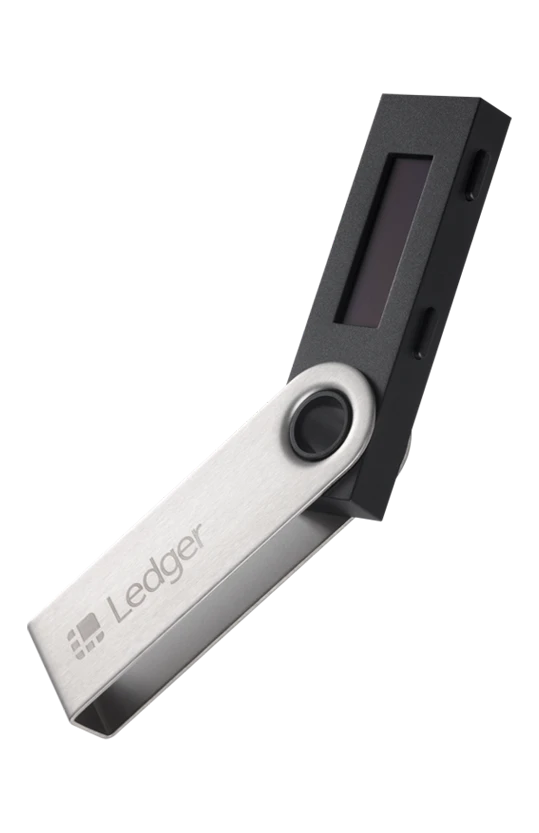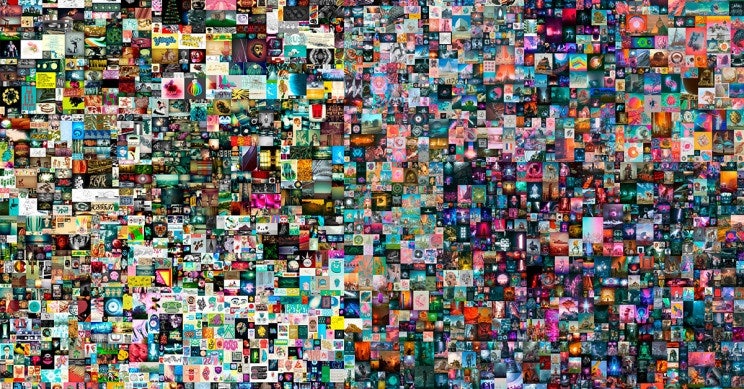Over the past year, non-fungible tokens (NFTs) have become one of the hottest trends from the world of crypto to go mainstream, drawing heavy attention from the art world, luxury brands, and celebrities and other public figures. Yet it remains to be seen how the technology can best be adapted to the needs of luxury brands. Both Richemont and LVMH have shown interest in using blockchain technology, while Gucci has hinted at plans to release NFTs, and it appears to be only a matter of time before the rest of the industry jumps on the bandwagon.
Jing Daily recently caught up with Ian Rogers, Chief Experience Officer at the Paris-based blockchain startup Ledger and former Chief Digital Officer at LVMH, and Benoit Pagotto, co-founder of RTFKT Studios, a trailblazing NFT brand, to discuss the intersection between luxury and NFTs and where things may be headed. This interview has been edited for content and length.
Jing Daily (JD): Let’s start with some broad thoughts on where you see the intersection between luxury, fashion, business and NFTs and crypto right now and how it's impacting the work that you're doing.#
Ian Rogers (IR)#
: I think whether it's the luxury brands or the Nikes of the world, they'll end up catching up to what Benoit’s doing [at RTFKT Studios]. I think he's the pioneer out there, showing what's possible and showing what customers actually want. And then I think you can expect to see the other brands watch what Benoit and others are doing and following.
I spent 20 years in the digital music business, working really closely with artists and artist managers, [starting] in the mid-90s with the Beastie Boys and their management company. The company I built in college was building websites for music companies. So I'm talking to the same people I was talking to literally in 1994 in 2021, going from digital music then to luxury. And now I'm still consulting for LVMH and I joined the board of Dr. Martens in January and Ledger all at once.
When I said yes to this job back in September, I never would have imagined that there would actually be this level of relevance [so soon]. I think that there's something really different in this revolution. It's worth pointing out, if you look at the internet revolution, these big companies were really dragged into it by consumers.
Let's just talk about music, because it's so obvious. Customers started saying they wanted digital music in 1998, very loudly. You could say that Napster and Kazaa made it get super loud. But it wasn't until the music business had lost 50 percent of its value that it invested in digital music. They really got dragged there.
But I actually think that this is going to go much more quickly. Look at Adidas’s quarterly report from a month ago. They were very clear that their focus is direct-to-consumer. They said in their report [that they] want to remove 1,000 stores from their retail network and want to go from 30 percent direct-to-consumer to 50 percent direct-to-consumer. Put that together with what's going on with NFTs. Benoit is proving that a digital good plus a physical good has way more value than a physical good alone.

Benoit is proving that he can basically sell a $4,900 digital good alongside a $100 physical good. Now imagine when the lightbulb goes off in Adidas’s head, that the item on adidas.com comes with a digital collectible and the item at "retailer dot com" does not. It fits with their focus way more than the internet did. The internet didn't fit in any incumbent’s focus. It was the opposite. It was like, “Oh my God, this threatens our monopoly in some way,” right? For the music business, it was, “Wait a minute, we want to sell a $17 compact disc, not a $1 digital file.” They got dragged into that world.
Whereas the shoe companies want to be in Benoit’s world. Benoit’s proving it's real. They're going to want to be there tomorrow. So I think you can expect to see this happen very quickly, much more quickly with the incumbents than you saw with the internet. And I think that they're going to have a host of new problems. I mean, how do you deal with returns of the digital item? How [does a company] deal with the security of a stockpile of $3 billion in digital assets? These are going to be new problems for incumbent companies. But I think that this is going to happen within the next 12 months.
JD: What do you think, Benoit?#
Benoit Pagotto (BP)#
: I think what is happening now is a revolution that was [long] brewing. Art people are freaking out. And you saw how Christie's and Sotheby's didn’t wait a year to make a move. They waited two months, three months. So I think they are much more understanding that the digital revolution can affect their business.
But where I think the luxury space gets the opportunity is that it's a business that has a legacy and the archives and the history. What I think they're going to have trouble with is that this is a revolution that's born from cultures they were never connected to. Even though we're less resourced than some of these guys, we have resources that they don't have, which is the culture that we have that they don’t -- gaming and crypto-culture. And you can't learn it from one day to the next.
And second, and what’s most important, we have the community and the young talent. We stay very connected to young talent. For luxury companies, it's always the same type of guys from the same business pool you see there. And it's them making decisions today. But now, more than ever, I think the potential for innovation [comes from] people like RTFKT, being the first of many new brands coming into the space and born from the space.
It’s like how a leading luxury brand did its big PR blast weeks ago, because they saw the news about our NFT sneakers and they wanted to be part of the conversation with their non-NFT sneaker. You can see they're still driven by a very short-term gain that is not driven by how to take part in the community, the ecosystem, and the consumers. And I don't see [that brand] is armed to make a significant value add to the revolution that's happening.
Some of them will. For sure, it's going to continue and [the big brands are] going to come in. And there is an amazing opportunity for luxury.
JD: For luxury brands to maintain the hype, there are certain things that they have to do in-house with these technologies, like authentication or VIP perks. But then also using your companies, pulling them in and working on these collaborations with the people that have great ideas and can actually make things happen?#
BP#
: The attitude among the luxury brands contacting us is, “we'd love to do something with you.” And we understand why they want to come to us because they want to be genuine and to look like they’re coming in through the community. But what I say is, “I don't know how to make luxury watches. Can I design one and you make it for me, can I benefit from your craftsmanship?”

That's what I'm doing now with [luxury brands] because I want to get something from them and also because if I do a collaboration with a top luxury brand it’s going to be big, but actually it's bigger if I do a collaboration with Fewocious, a big crypto-artist, than if I do it through the brand. So we'll have less press than if I do it with the big luxury brand, because you’ll see all the mainstream press going to talk about it. But the collectors, the people who think of the long term value of the work we do, they will find it more valuable if I do it with a really good, respected and creative crypto-artist.
IR#
: I would just point out that nobody understands direct-to-consumer like the luxury industry. I mean, Warby Parker might be new, but everybody in the luxury industry has been watching the people who are completely vertically integrated for 20+ years. Vuitton, Hermès, Dior, Chanel, every brand wants to be one of those four brands when they grow up. You know, and this is why at LVMH, we always said the business is direct-to-consumer. It's not like a portion of our business. The business is direct-to-consumer. Everything else we do is in service of that direct-to-consumer business.
So my point is that NFTs are actually going to prove to be an incredibly important resource in that expansion of being a direct-to-consumer business. That's why it's actually where luxury is probably going to lead the way. And any brand that is really focused on becoming a direct-to-consumer business, like Nike is, like Adidas is, like Dr. Martens are, I think that that's where you're going to see a lot of quick and smart adoption.
If you think about it, there's always been this broad spectrum in music. There's consumption, which is basically commoditized, just go to YouTube, but then there is still a vibrant collector market. There are lots of people who buy vinyl and don't have turntables. There are lots of people who buy vinyl and never open the plastic. So I think that the analogs are there are lots of people who buy sneakers and never take them out of the box. These things aren't new in a way, but they'll be a part of our lives, in a completely different way.

I loved the interview that Beeple did with Kara Swisher. It was fantastic because I love that Beeple is living in today. He's not like talking about the future and he's not denying the past. And I feel like everybody kind of lands on one of those two ends, like Mark Cuban is going to tell you what it's going to be like five years from now. That's why he's investing today. And someone else is going to say, “but I don't want to collect digital things,” and that person’s living in the past, whereas Beeple’s thing was just like, “Guys, look around. We live on the internet. We're human beings. What else do you want to know?”
So I think that's where it gets interesting, just sort of confronting who we are and the world that we live in and NFTs are the equal sign. It's just that simple in a way. So I think that what has to happen is we have to build around that. And that's what we’re all collectively trying to do, whether it's what Benoit’s doing, what we're doing at Ledger. And, you know, even like what Dr. Martens is doing, what LVMH is doing. Everybody has a role to play because, at the end of the day, we all serve customers.
BP:#
Just to reiterate on that, what's very important I think -- and is the question I always hate -- what’s going to happen in five years? I always say, whoever’s answering this is just a big liar because no one can know. And me, I just focus on what we can do every day, that’s why at RTFKT we’re coming up with stuff all the time, because these days there are not many moments like that. Here, every day we can set new standards. If you do it well, you do it with passion, creativity and you execute well, you are setting a new standard.
So what matters is not just trying to think things are going to affect my brand in five years and what can I do, it’s what can you start to get going today, and with who? To make stuff happen and manifest these ideas that everyone has been reading about in books forever. You can manifest one idea from a sci-fi book from the seventies every day today.
Special thanks to Ian Rogers, Benoit Pagotto, and Michael Kazam for the discussion.

